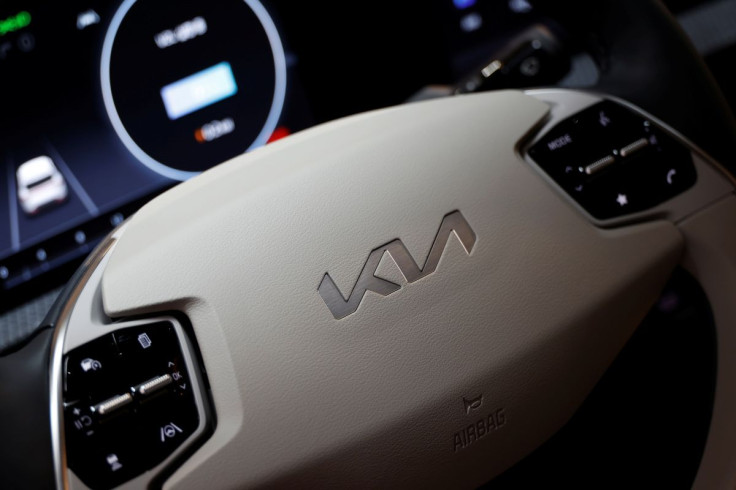Korea Fears Missing Bus When It Comes To Electric Vehicles

Electric vehicles (EVs) are finding more takers in the U.S. and other nations because of concerns over climate change as well as rising oil prices. While major automakers are strengthening their EV lineups, their South Korean counterparts fear that they will miss the bus because of the Inflation Reduction Act (IRA) -- the biggest climate bill in U.S. history.
Close allies the U.S. and South Korea are heading for a trade war because Korean car-makers view the new U.S. rules under the IRA that favor American-made electric vehicles and batteries as against the WTO norms. The feud can cast a shadow over their decades-long economic and security cooperation.
After the biggest climate bill in the U.S. was signed into law by Joe Biden last month, auto majors have announced a flurry of investments in battery plants in the country.
The rivalry in the EV space has become more intense with U.S. giants like Tesla, Ford, GM and Rivian having started to bet big on the new Act and global brands like Mercedes-Benz and BMW starting manufacturing locally.
Well-known South Korean global brands like Hyundai and Kia have confirmed a big push for EV production. After Tesla, Hyundai was the second best-performing EV firm in the U.S. last year.
But South Korean giants don't have operational EV plants in the U.S., so they are not in a position to receive tax credits under the Act. Lack of a manufacturing facility in the U.S. could mean that their vehicles will become dearer and South Korean companies could lose out.
Under the $430 billion bill, seen as the biggest climate package in the U.S, at least 40 percent of critical minerals in batteries should be sourced from the U.S. or from an American free-trade partner. The new rules will come into force next year and the proportion of raw materials will be hiked to 80 percent by 2027.
The Act aims to curb China's growing influence in the EV industry. It will open points of friction as the treatment of 58 percent of lithium, 64 percent of cobalt and 70 percent of graphite goes through China, which is the biggest trading partner of South Korea.
In the first six months of this year, imports and exports amounted to $184 billion between the two nations, a nearly 10 percent increase compared with the same period last year. Both China and South Korea are members of the Regional Comprehensive Economic Partnership (RCEP), the world's largest free trade agreement.
Not to annoy China, when Nancy Pelosi, the U.S. House speaker, landed in South Korea on Aug. 3, President Yoon Suk-yeol didn't meet her and his foreign minister didn't turn up to receive her.
South Korea's parliament on Sep. 1 passed a resolution expressing concern over the Act. The parliament termed the new U.S. law discriminatory and urged the South government to respond.
Lee Do-hoon, a South Korean vice foreign minister, has walked that extra mile by asking the U.S. administration to delay the Act until Korean chaebol Hyundai completes its $5.5 billion Georgia factory by 2025.
On its part, LG, another Korean conglomerate, has roped in Japanese automaker Honda to invest $4.4 billion in a joint venture in the U.S. to produce batteries. But the plant's site is still undecided and the construction will only begin in 2023 and the mass production of advanced lithium-ion battery cells will commence only by 2025.
After meeting U.S. national security adviser Jake Sullivan in Hawaii, South Korea's national security adviser Kim Sung-han said on Sep. 1 the U.S. expressed optimism, saying the U.S. has promised to review the new rules on subsidies.
To gain more bargaining chips, South Korea is pinning hopes on another U.S. law, pieced together by President Biden, last month. The U.S. has invited South Korea to join the "Chip 4" semiconductor alliance along with Japan and Taiwan. The alliance is part of the CHIPS Act, signed into law in August by President Biden.
Again, the Act aims at building a U.S.-oriented semiconductor industrial chain that excludes China.
South Korea is home to Samsung Electricals, the largest semiconductor maker in the world. South Korea may exert pressure on the U..S with the Chip 4 semiconductor alliance to get some respite from the biggest climate bill in the U.S. history for its auto giants.
























